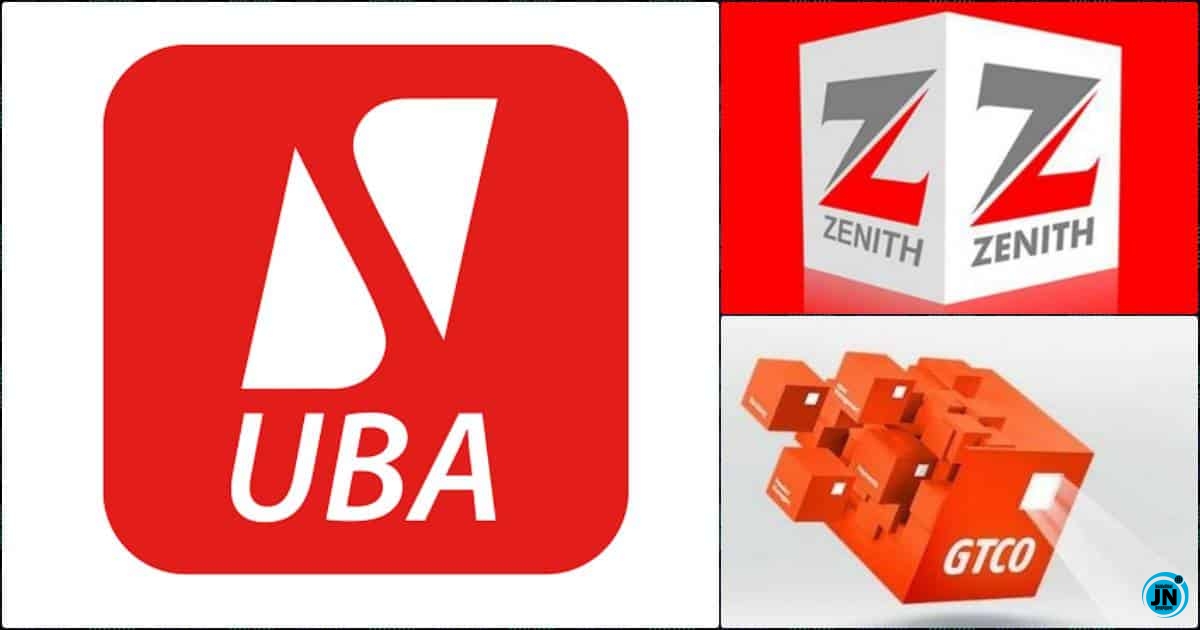
Three of Nigeria’s biggest banks—Zenith Bank, Guaranty Trust Holding Company (GTCO), and United Bank for Africa (UBA)—have incurred a combined N172.3 billion windfall tax liability, following the Finance (Amendment) Act 2023, which imposes a 70 percent levy on FX windfall profits made between 2023 and 2025.
The new tax, which was signed into law in August 2024, aims to capture extraordinary foreign exchange gains that banks recorded due to the naira’s devaluation after Nigeria adopted a market-driven exchange rate regime in June 2023.
Breakdown of tax liabilities
Zenith Bank – N63.3 billion
Zenith Bank, which reported a record N1.3 trillion pre-tax profit, has been hit with a N63.3 billion windfall tax. The charge significantly trims its post-tax earnings, as a sizable portion of its profits came from FX revaluation gains and investments. Analysts suggest that while the bank’s robust financial position allows it to absorb the impact, the taxation will affect dividend payouts and reinvestment strategies.
GTCO – N51.1 billion
GTCO recorded a total windfall tax liability of N51.1 billion, comprising N23.7 billion for 2023 and an additional N27.4 billion accrued for 2024. The bank’s N1.2 trillion pre-tax profit was driven by strong FX gains and rising interest income following monetary tightening by the CBN. Industry experts note that while the tax reduces short-term profitability, GTCO remains well-positioned for sustained growth due to its diversified revenue streams and strong capital adequacy ratio.
UBA – N57.9 billion
UBA is facing a windfall tax of N57.9 billion, with N24.8 billion attributed to 2023 and N33.1 billion set for 2024. Despite recording N803 billion in pre-tax profit, the tax charge is expected to impact the bank’s bottom line. Financial analysts highlight that UBA’s extensive pan-African presence provides a buffer against domestic fiscal policies, allowing it to remain competitive despite the imposed tax burden.
Why this tax matters
The Nigerian government introduced this windfall tax to generate additional revenue from banks that benefited from foreign exchange gains during the naira’s sharp devaluation. Policymakers argue that these banks saw unprecedented profits due to exchange rate volatility rather than organic business growth, justifying the taxation as a means to balance economic disparities.
While the policy has sparked debate over its impact on banking sector liquidity, affected banks have recognized the liabilities in their financial reports and are working with the Federal Inland Revenue Service (FIRS) to settle payments. Bank executives have expressed concerns over the long-term impact of such taxation policies on investor confidence and foreign direct investment (FDI) in the banking sector.
Economists suggest that although the tax helps the government boost its revenue in the short term, excessive taxation on the financial sector could discourage investment and lending activities, potentially slowing economic growth. Some industry stakeholders are advocating for a review of the tax policy to ensure it does not stifle innovation and financial stability.
As Nigeria’s financial landscape adjusts to this tax intervention, analysts will be watching closely to see how it affects bank profitability, shareholder returns, and future investment decisions. Many anticipate that the affected banks will explore strategic cost-cutting measures, increased operational efficiencies, and diversified revenue streams to mitigate the impact of the windfall tax and sustain growth in the coming years.

